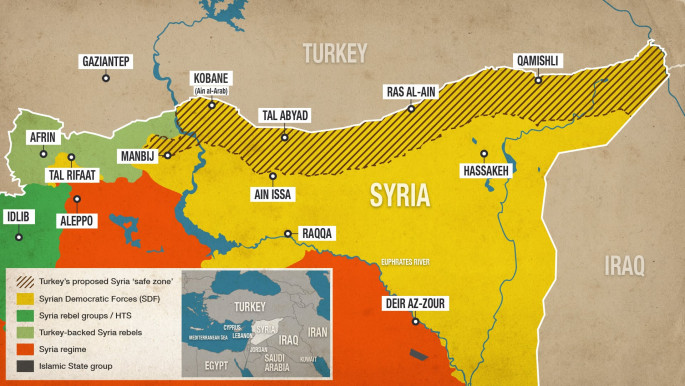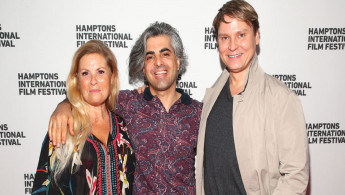Syria's heroic underground female medics hailed in 'The Cave', by Oscar-nominated Syrian director Feras Fayyad
The Syrian director risked his life to document the atrocities of the longest running siege in Syria’s modern history, suffering torture in prison because of his films.
He had his nails pulled out and was subject electric shocks to intimate parts of his body by the Assad regime, but despite this violence, Fayyad and other Syrians remains resilient to do their part in surviving the war.
Amani Ballour is a young female pediatrician who ran a subterranean hospital treating victims of the raging conflict above her
"She saw so much. I don't think anyone alive - just the Holocaust survivors - has seen the same size of what she saw," Fayyad told AFP. "The barbaric siege, the longest running siege in Syria's modern history in Eastern Ghouta... Nobody can imagine this."
Read more: Anti-Assad protests break out in eastern Syria following SDF-regime agreementThe film takes the audience through a network of underground channels where Ballour treats patients in makeshift wards in the Damascus suburb.
She and her team relently persisted through the waves of Russian and Syrian regime bombing, until they were forced to evacuate after a chemical attack in 2018.
But Amani was not sure her plight would be of interest to audiences abroad.
"Why do you think they will respond when there's bigger issues happening around us?" Amani asked Fayyad.
Twitter Post
|
"I want to try - I want to trust that people could respond to this," he recalled telling her. "I don't think people will (be able to) move their eyes from that, from what you do."
Fayyad worked with a local camera crew to create a harrowing 102-minute documentary depicting everyday life and horrors that come with it.
Footage of medics scrambling to deal with the chlorine gas attack's deadly aftermath is especially searing.
But the film also depicts moments of joy that survive the tragedy: from a young nurse's creative attempts to cook for 150 people with scant supplies, to a secret birthday party featuring surgical gloves for balloons.
Fayyad added that he wanted to depict Amani's efforts because she was one of the only female hospital directors in a society which tended to be patriarchal.
Early in the film she is berated by a desperate patient's husband, who blames the hospital's lack of medicine on its female director.
Having grown up in a female-dominated household with seven sisters, Fayyad said he is acutely aware of harassment and even violence against women who refuse to conform.
"Along with the torture I've experienced, I heard the sounds of women who were tortured because of their gender," he said. "And I was threatened that they will bring my mom and my sisters to the prison.
 |
"There were times when I heard the sounds and I felt like it was my mother and my sister (being tortured)."
Amani was able to escape to northern Syria, and eventually Europe via Turkey, whilst Fayyad was to safety smuggled across the Jordan border and now lives between Denmark and northern Syria.
Having a Kurdish mother, Fayyad has been alarmed by recent events which saw US forces withdraw from Kurdish-held northern Syria, and Turkey launch an offensive across the border.
"I think what's happening now it's very, very scary because it's extending the time of the war in Syria, and there are more victims," he said, predicting another wave of refugees will follow.
"Because I'm not there, I feel guilty," admitted Fayyad, who spoke to AFP in Los Angeles. "Like I'm sitting here away, and thinking every day about my family and my friends and colleagues who are suffering.
"I feel like you have to do something... and bring these voices. I try to bring the hope for these people."
Follow us on Twitter: @The_NewArab





 Follow the Middle East's top stories in English at The New Arab on Google News
Follow the Middle East's top stories in English at The New Arab on Google News
![Israeli forces ordered bombed Gaza's Jabalia, ordering residents to leave [Getty]](/sites/default/files/styles/image_330x185/public/2176418030.jpeg?h=a5f2f23a&itok=_YGZaP1z)

